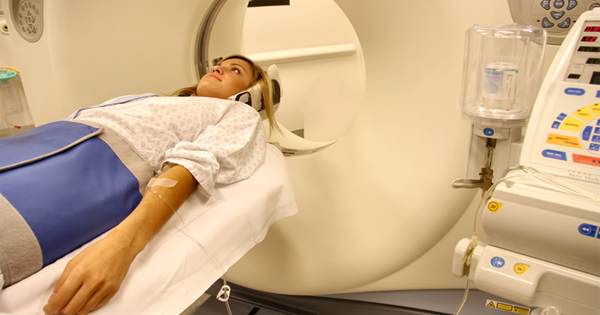Advertisement
When you’re at the doctor’s, it might seem like a no-brainer to ask for that extra test, just to confirm that everything is healthy and functioning as it should be. For some patients, that extra test could even end up being lifesaving.
Unfortunately, the benefits of extra, precautionary testing don’t outweigh its downsides.
These tests not only take time and cost money (In 2011, doctors estimated that $6.8 billion was used on unnecessary medical tests), but they can also end up being detrimental to your health if they’re done too often. Tanveer Mir, chair of the Board of Regents of the American College of Physicians says, “[Testing] can expose you to radiation, cause unnecessary anxiety and lead to expensive follow-up tests and treatments that themselves carry risks, sometimes even more so than the disease you’re screening for.”
Here are the five medical tests that are most commonly requested when they’re not needed:
Stress test for heart disease
Many people have this test done during their routine checkup, but doctors say that if you’re at low risk for heart disease, having the test done isn’t recommended. The results could be misleading, prompting you to take even more unnecessary tests. Only if you have symptoms of heart disease – like chest pain or breathing difficulties – or if your doctor advises, should you take the stress test.
Chest X-rays before surgery
It’s standard protocol for most hospitals to have their patients take chest X-rays before surgery, but according to a study published in JAMA Internal Medicine last year, only 2% of the chest X-rays taken in pre-op preparations have changed how surgeons and anesthesiologists provide their care. Reviewing medical history or conducting a physical exam is often telling enough. If you have a chest condition, however, the chest X-ray is advised.
CT scan for headaches and concussions
Unfortunately, CT scans don’t often provide your doctor with more, relevant information to assess your condition. 1 in 3 CT scans done on head injuries has proven to be unhelpful, and only 1-3% of CT scans done on headaches reveal significant information about the patient’s condition. Edward Melnick, an assistant professor of emergency medicine at Yale University, wrote in one of his studies, “Concussions can’t be seen on a CT scan.” CT scans should generally be taken when more worrisome symptoms occur at the same time as head pain.
Carotid artery ultrasounds
This ultrasound is done on a person’s neck to determine whether carotid arteries are clogged (a symptom that can assess a person’s risk for having a stroke). For patients who actually have clogged carotid arteries but don’t display any symptoms, however, only 2% of them actually have a stroke. For patients who don’t have clogged arteries, the ultrasound may incorrectly determine that they do.
Pelvic exams for women
Not enough evidence can be used to argue that pelvic exams actually help discover ovarian cancer or other benign problems (like fibroids or cysts) at an earlier time. The nature of pelvic exams can also make women anxious during the appointment, making it more likely that an unnecessary surgery will be scheduled, given the nerve-skewed results of the exam.
In the future, only ask your doctor to schedule you an exam when you experience particular symptoms, or if your doctor advises you to take it. Don’t try to beat yourself to the finish line.




